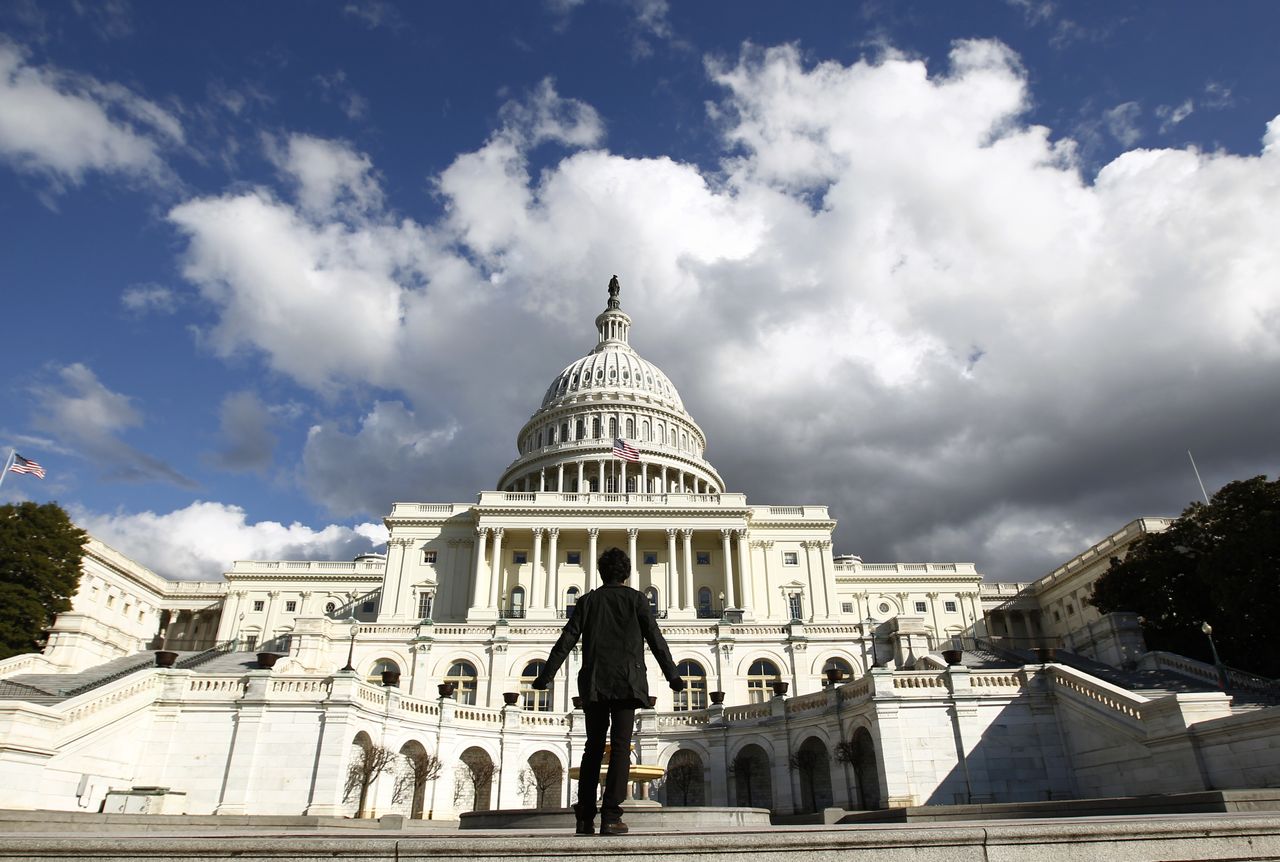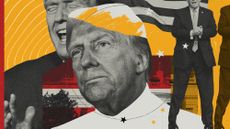This is how Congress can take back power
Sen. Mike Lee has launched a project to fix the biggest problem with government today


Have you noticed that there are a lot of problems with the federal government? And Congress is not very popular these days? Those things are connected. It's up to Congress to set the policies that make the federal government do what it's supposed to do, and do it well. That's why Article I, the first article of the Constitution, is about Congress.
A lot of people complain about the imperial presidency and the fact that more and more power is vested in the White House, and in the administrative state and regulatory bodies. The president has recently claimed the power to unilaterally rewrite health care law, tax law, immigration law, and welfare law. Not to mention the whole business about having the right to assassinate whomever he wants wherever he wants.
Obama isn't wholly to blame — the term "imperial presidency" dates from the 1960s and is used to describe the vast increase in executive power — and attempts to gain more power — that have occurred since Franklin Roosevelt took office in 1933. Politicians of both parties are responsible for this, and the powers of the presidency grew a lot under George W. Bush. The problem is structural. And this is mostly the fault of Congress. The way it's supposed to work is that when the president tries to grab too much power, Congress puts a stop to it. And it largely hasn't. But there might be a way to fix this.
Subscribe to The Week
Escape your echo chamber. Get the facts behind the news, plus analysis from multiple perspectives.

Sign up for The Week's Free Newsletters
From our morning news briefing to a weekly Good News Newsletter, get the best of The Week delivered directly to your inbox.
From our morning news briefing to a weekly Good News Newsletter, get the best of The Week delivered directly to your inbox.
This problem happened because there a lot of hard decisions for a government of a country of this size and power to make. Ceding power to the executive branch is one way for members of Congress to avoid being held accountable for these decisions. This has been going on for decades. So many policies that are so controversial to Americans — federal funding for abortion, oil drilling on federal lands, Environmental Protection Agency water quality rules, federal education standards, even immigration — came about because instead of deciding on many important questions, Congress (on the rare occasions that it passes laws anymore) leaves extensive decision-making to the regulatory process through the phrase "the secretary shall determine." This line, which you'll find in so many laws, ends up giving the executive branch of government huge control over policy.
But the United States is supposed to be a representative republic. That means that important decisions are made by the people's elected representatives. When Congress incessantly passes the buck, this key democratic mechanism becomes gummed up. This is bigger than any one election, policy, party, or ideology.
The process also encourages cronyism, because it's easier for connected insiders to bend the rules to their liking when those rules are made by unelected and invisible bureaucrats and appointees, rather than by elected, accountable leaders. Is it any wonder that Americans' trust in their government is at all time lows?
Utah Sen. Mike Lee has come up with an idea to fix this. Right now, it's not much. But the long-term potential is huge. With a few other Republican lawmakers from both houses, he is starting something called the "Article I Project," an effort to create structural reforms to bring accountability back to Congress.
As he explains in an op-ed in National Review, the first few items for reform are: 1. to clarify the budget process; 2. to end those legislative fiscal "cliffs" that threaten to shut down the government at regular intervals; 3. to bring executive regulations back under congressional oversight; and 4. to set clearer standards on "executive discretion," the doctrine whereby the executive branch gets to interpret statutes the way it wants.
Longer term, however, the Article I Project also aims to be a sort of in-house think tank to formulate and promote structural reforms aimed at restoring the power of Congress.
Right now the only people on board with Lee's project are Republicans. Lee has said that several Democrats support his efforts, but are balking at supporting something that would inconvenience their party's president or seem disloyal to the party — which, of course, is exactly the sort of dynamic that enables these shenanigans to go on.
Undoubtedly, if there's a Republican in the White House next year, some Democrats will re-discover the perils of executive overreach, and some Republicans will suddenly forget that it's such a big deal. I doubt that Lee will be in this group. I hope his effort succeeds and people of good will interested in good, constitutional government support him.
Sign up for Today's Best Articles in your inbox
A free daily email with the biggest news stories of the day – and the best features from TheWeek.com
Pascal-Emmanuel Gobry is a writer and fellow at the Ethics and Public Policy Center. His writing has appeared at Forbes, The Atlantic, First Things, Commentary Magazine, The Daily Beast, The Federalist, Quartz, and other places. He lives in Paris with his beloved wife and daughter.
-
 Food nostalgia: a feast down memory lane
Food nostalgia: a feast down memory laneIn the Spotlight Why Britons have an increasing taste for favourite old dishes
By Rebekah Evans, The Week UK Published
-
 Pros and cons of tariffs
Pros and cons of tariffsPros and Cons Mainstream economists are 'generally sceptical' levies on imports can protect domestic industries and promote prosperity
By The Week UK Published
-
 The best islands to visit in Croatia
The best islands to visit in CroatiaThe Week Recommends Venture beyond Dubrovnik to discover the Adriatic Coast's hidden gems
By Irenie Forshaw, The Week UK Published
-
 Will Trump's 'madman' strategy pay off?
Will Trump's 'madman' strategy pay off?Today's Big Question Incoming US president likes to seem unpredictable but, this time round, world leaders could be wise to his playbook
By Sorcha Bradley, The Week UK Published
-
 US election: who the billionaires are backing
US election: who the billionaires are backingThe Explainer More have endorsed Kamala Harris than Donald Trump, but among the 'ultra-rich' the split is more even
By Harriet Marsden, The Week UK Published
-
 US election: where things stand with one week to go
US election: where things stand with one week to goThe Explainer Harris' lead in the polls has been narrowing in Trump's favour, but her campaign remains 'cautiously optimistic'
By Harriet Marsden, The Week UK Published
-
 Is Trump okay?
Is Trump okay?Today's Big Question Former president's mental fitness and alleged cognitive decline firmly back in the spotlight after 'bizarre' town hall event
By Harriet Marsden, The Week UK Published
-
 The life and times of Kamala Harris
The life and times of Kamala HarrisThe Explainer The vice-president is narrowly leading the race to become the next US president. How did she get to where she is now?
By The Week UK Published
-
 Will 'weirdly civil' VP debate move dial in US election?
Will 'weirdly civil' VP debate move dial in US election?Today's Big Question 'Diametrically opposed' candidates showed 'a lot of commonality' on some issues, but offered competing visions for America's future and democracy
By Harriet Marsden, The Week UK Published
-
 1 of 6 'Trump Train' drivers liable in Biden bus blockade
1 of 6 'Trump Train' drivers liable in Biden bus blockadeSpeed Read Only one of the accused was found liable in the case concerning the deliberate slowing of a 2020 Biden campaign bus
By Peter Weber, The Week US Published
-
 How could J.D. Vance impact the special relationship?
How could J.D. Vance impact the special relationship?Today's Big Question Trump's hawkish pick for VP said UK is the first 'truly Islamist country' with a nuclear weapon
By Harriet Marsden, The Week UK Published